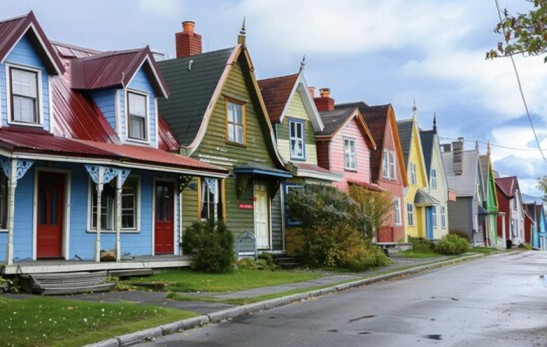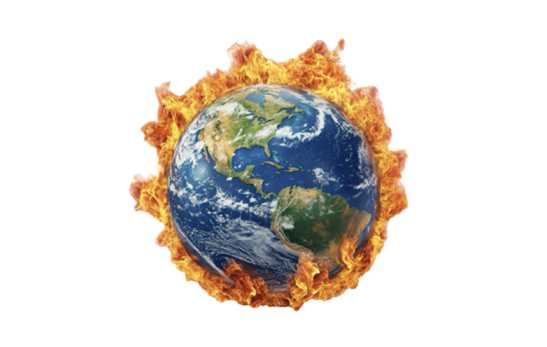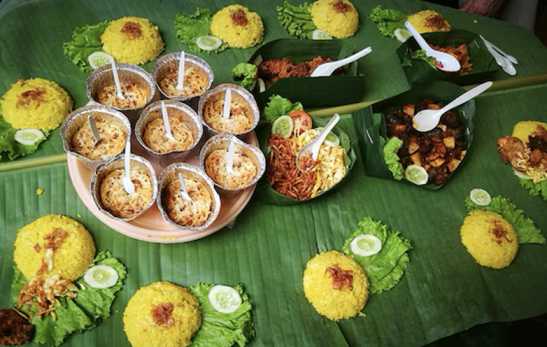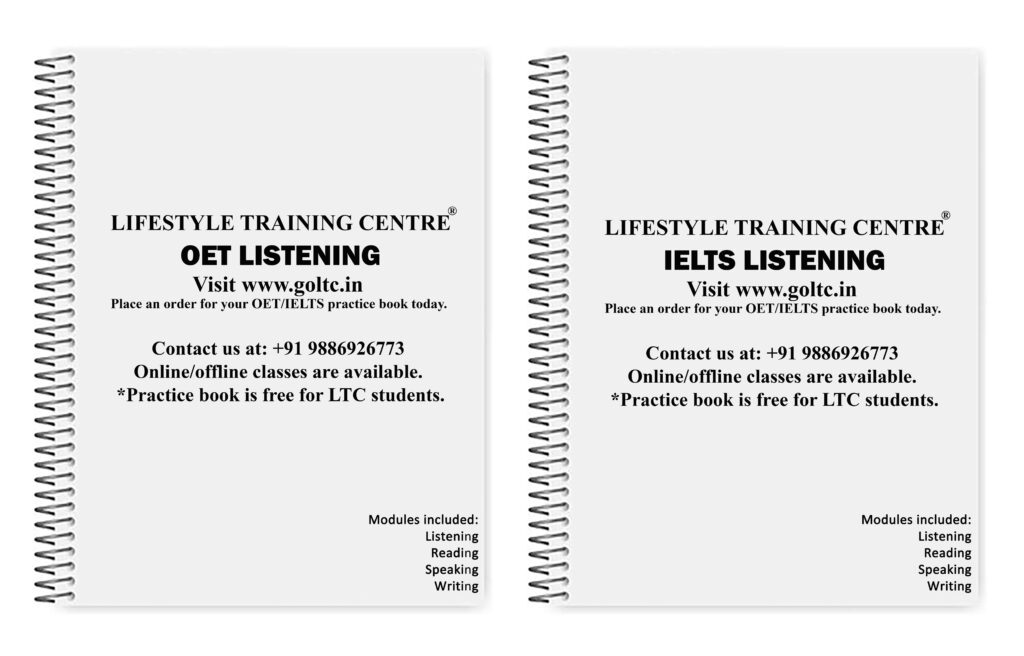83. Topic: A Natural Disaster
– Question 83: Describe a natural disaster you’re aware of.
– You should say:
– What was the disaster, and where and when did it happen?
– How did it impact the affected area and its people?
– What relief efforts were made to help those affected?
– How can individuals and governments prepare for such disasters?
Model answer by Lifestyle Training Centre
One natural disaster that left an indelible mark on my mind is the devastating Wayanad landslide, which occurred in Kerala, India, in recent years. Wayanad, known for its lush greenery and rolling hills, became a scene of utter destruction during the monsoon season when torrential rains triggered a massive landslide.
The disaster struck in August, following incessant rainfall that lasted for days. Entire hillsides collapsed, burying homes, farmlands, and roads under tonnes of mud and debris. The affected areas, particularly villages nestled in the hills, were cut off from the rest of the world. It was heartbreaking to see visuals of people stranded, their homes reduced to rubble, and livelihoods wiped out in the blink of an eye.
The human toll was catastrophic—many lives were lost, while countless families were left homeless. The psychological trauma of losing loved ones and the uncertainty of the future added to the already dire situation. Moreover, the landslide wreaked havoc on the environment, uprooting centuries-old trees and displacing wildlife. It was a stark reminder of the delicate balance between humans and nature.
Relief efforts, though swift, faced numerous challenges due to the rugged terrain. The Kerala government, along with national disaster response teams, sprang into action, deploying rescue personnel and heavy machinery to clear debris and search for survivors. Shelters were set up for the displaced, and NGOs played a crucial role in providing food, medical aid, and emotional support. Despite these efforts, the road to recovery has been long and arduous for many.
This disaster has underscored the urgent need for better disaster preparedness. Governments need to invest in early warning systems, improve drainage infrastructure in hilly areas, and enforce stricter regulations on construction in vulnerable zones. On an individual level, awareness campaigns can educate communities about evacuation plans and safety measures. As the saying goes, “Prevention is better than cure.”
Reflecting on the Wayanad landslide, I am reminded of the immense power of nature and the fragility of human life. It also highlights the importance of sustainable development and respecting ecological limits to prevent such tragedies in the future.
List of vocabulary used:
- Indelible mark – A lasting or unforgettable impression.
- Monsoon season – The season marked by heavy rainfall, typically in tropical regions.
- Torrential rains – Very heavy and intense rainfall.
- Tonnes of mud – Large amounts of mud (used figuratively to describe destruction).
- Cut off – Separated or isolated from others, unable to access or connect.
- Heartbreaking – Causing great sadness or emotional pain.
- Human toll – The impact on human lives (often refers to loss of life or suffering).
- Psychological trauma – Emotional or mental damage caused by a distressing event.
- Dire situation – A very serious or dangerous situation.
- Displacing wildlife – Forcing animals to move from their natural habitats.
- Stark reminder – A clear and powerful reminder, often of something unpleasant.
- Relief efforts – Actions taken to help people who are affected by a disaster.
- Rescue personnel – Workers or volunteers involved in saving people during an emergency.
- Heavy machinery – Large, powerful equipment used for construction or rescue operations.
- Emotional support – Providing comfort and reassurance during difficult times.
- Urgent need – A pressing or immediate requirement.
- Early warning systems – Tools or methods used to alert people about potential dangers ahead of time.
- Drainage infrastructure – Systems designed to manage water flow, especially in areas prone to flooding.
- Stricter regulations – More rigid or stringent rules or laws.
- Awareness campaigns – Initiatives to educate or inform the public about important issues.
- Evacuation plans – Pre-arranged strategies for safely removing people from a dangerous area.
- Sustainable development – Development that meets the needs of the present without compromising future generations.
Idioms/Phrases:
- Indelible mark – A lasting, unforgettable impression.
- Torrential rains – Very heavy and intense rainfall.
- Utter destruction – Complete or total devastation.
- Blink of an eye – A very short moment; something happening very quickly.
- Human toll – The loss of life and harm to people during a disaster.
- Psychological trauma – Emotional or mental damage caused by a distressing event.
- Wreaked havoc – Caused significant damage or destruction.
- Delicate balance – A fragile or sensitive equilibrium between two opposing forces.
- Road to recovery – The process of returning to normal after a disaster or setback.
- Swift relief efforts – Rapid and immediate actions taken to aid those affected.
- Rugged terrain – Difficult, uneven, or harsh land or landscape.
- Spring into action – To start doing something quickly and with urgency.
- Long and arduous – A process that is both lengthy and very challenging.
- Underlined the need – Emphasised the importance or necessity of something.
- Stricter regulations – More severe or rigid rules or laws.
- Vulnerable zones – Areas that are at higher risk of harm or damage, often due to natural conditions.
- Prevention is better than cure – It’s better to take measures to prevent problems than to deal with them after they arise.
- Reflecting on – Thinking carefully or deeply about a past event or experience.
- Power of nature – The immense, uncontrollable force of the natural world.
- Fragility of human life – The delicate or easily harmed nature of human existence.
- Ecological limits – The boundaries or constraints of the natural environment that should not be exceeded.
IELTS Speaking Task Topics
Click on any topic to explore more!
Names

Learn about the importance of names and their cultural significance.
Study / Job

Discuss various aspects of studying and working in different fields.
Hometown

Explore the charm of your hometown and its unique features.
Accomodation

Understand various types of accommodation and living situations.
Weather

Learn about how weather influences daily life and activities.
Time

Discuss the concept of time, its importance, and time management.
Television

Talk about the role of television in modern entertainment.
Museum

Discuss the cultural importance of museums and historical exhibits.
Holidays

Explore the significance of holidays and different celebrations.
Films

Learn about the impact of films on culture and society.
Leisure Time

Discuss how leisure activities impact personal well-being.
Sport

Talk about the role of sports in health, entertainment, and culture.
Vegetables and Fruits

Discuss the health benefits and importance of fresh produce.
Maths

Explore the role of mathematics in various aspects of life.
Sky

Discuss the beauty and scientific significance of the sky.
Clothes&Fashion

Explore how clothing reflects culture and personal expression.
Weekend

Discuss the importance of weekends and ways people relax.
Reading

Learn about the importance of reading and various reading habits.
Sleep

Explore how sleep impacts physical and mental well-being.
Trees&Plants

Discuss the environmental and health benefits of plants.
Newspaper

Discuss the evolving role of newspapers in the digital age.
Texting

Explore the role of text messaging in modern communication.
Memorising

Learn techniques for improving memory and memorization.
Travelling

Discuss the importance and impact of traveling in modern society.
Communication

Explore the modes and significance of communicating well
Letter&Email

Explore the differences and significance of letters vs. emails.
Swimming

Discuss the benefits of swimming for health and fitness.
Snacks

Explore the role of snacks in daily nutrition and lifestyle.
Photography

Discuss photography’s cultural and artistic significance.
Help

Talk about the importance of offering and receiving help.
History

Discuss historical events and their impact on modern society.
Handwriting

Explore the significance of handwriting in education and culture.
Music

Learn about the influence of music on emotions and society.
Colours

Discuss how colours affect perception and mood.
Teachers

Explore the role of teachers in shaping students’ futures.
Being Alone

Talk about the experience and benefits of spending time alone.
Teamwork

Learn the importance of teamwork in professional and social contexts.
Countryside & City

Explore the charm and benefits of living in the countryside.
Social Media

Discuss the impact of social media on society and relationships.
Friends

Explore the importance of friendships in life.
Artificial Intelligence (AI)

Talk about the future of AI and its role in society.
Climate Change

Discuss the causes and consequences of climate change.
Transportation

Explore different modes of transportation in your area.
Sustainable Transportation

Explore ways to make transportation more environmentally friendly.
Space Exploration

Learn about the latest advancements in space exploration.
Shopping

Explore how shopping influences culture and the economy.
Modern Technology

Discuss how modern technology is reshaping society.
Technology

Learn about the role of technology in everyday life.
Sustainable Living

Explore ways to live sustainably for the future of the planet.
Globalisation

Learn about the effects of globalisation on society and economies.
Global Warming

Discuss the causes, effects, and solutions to global warming.
Gender Equality

Explore the importance of gender equality in modern society.
Health and Fitness

Discuss the importance of maintaining a healthy lifestyle.
Renewable Energy

Learn about renewable energy sources and their impact on the environment.
Cultural Traditions in Kerala

Explore the unique cultural traditions of Kerala, your hometown.
Cultural Traditions in Your Country

Learn about the cultural traditions in your country.
Education System

Discuss the education system in your country and its effectiveness.
Traditional Cuisine

Explore the significance of traditional cuisines in your culture.
Do you need printed IELTS/ OET practice material? Place your order today. Available now for just Rs: 1,100 (including shipping all across India) Contact us at our WhatsApp number: +91 9886926773 to place your order. (Free for LTC students)

We hope this information has been valuable to you. If so, please consider a monetary donation to Lifestyle Training Centre via UPI. Your support is greatly appreciated.

Would you like to undergo training for OET, PTE, IELTS, Duolingo, Phonetics, or Spoken English with us? Kindly contact us now!
📱 Call/WhatsApp/Text: +91 9886926773
📧 Email: mail@goltc.in
Visit us in person by following the directions on Google Maps. We look forward to welcoming you to the Lifestyle Training Centre.
Follow Lifestyle Training Centre on social media:
Thank you very much!
